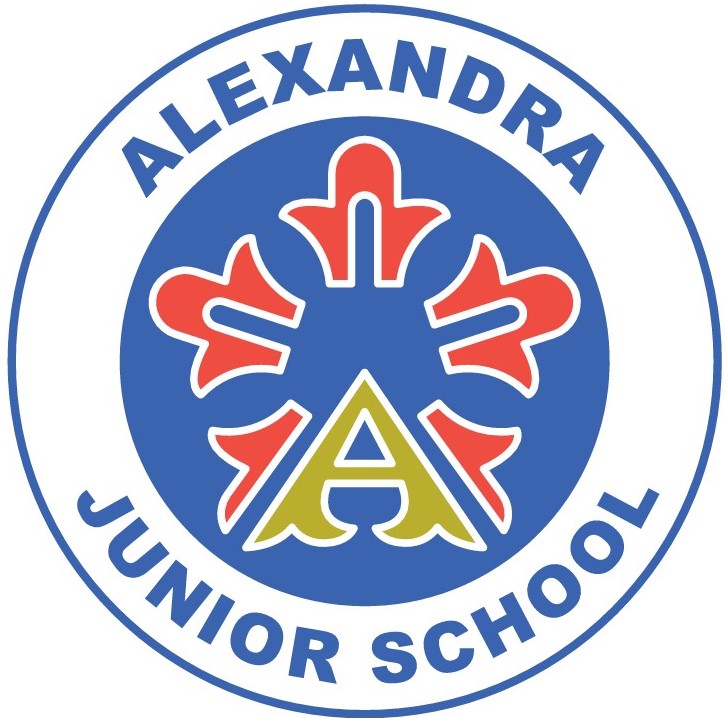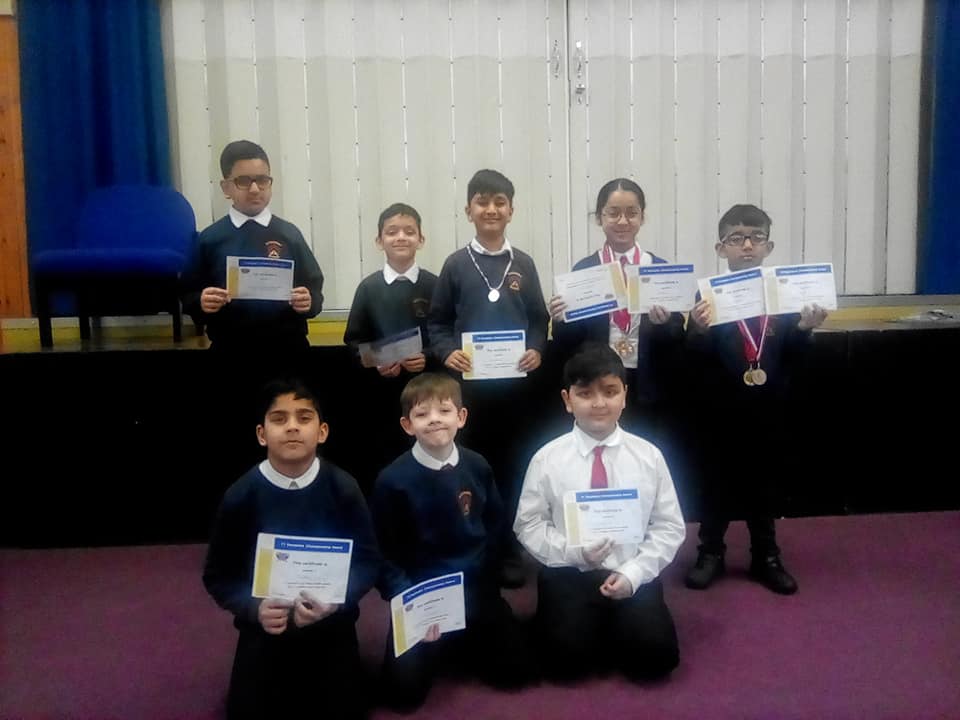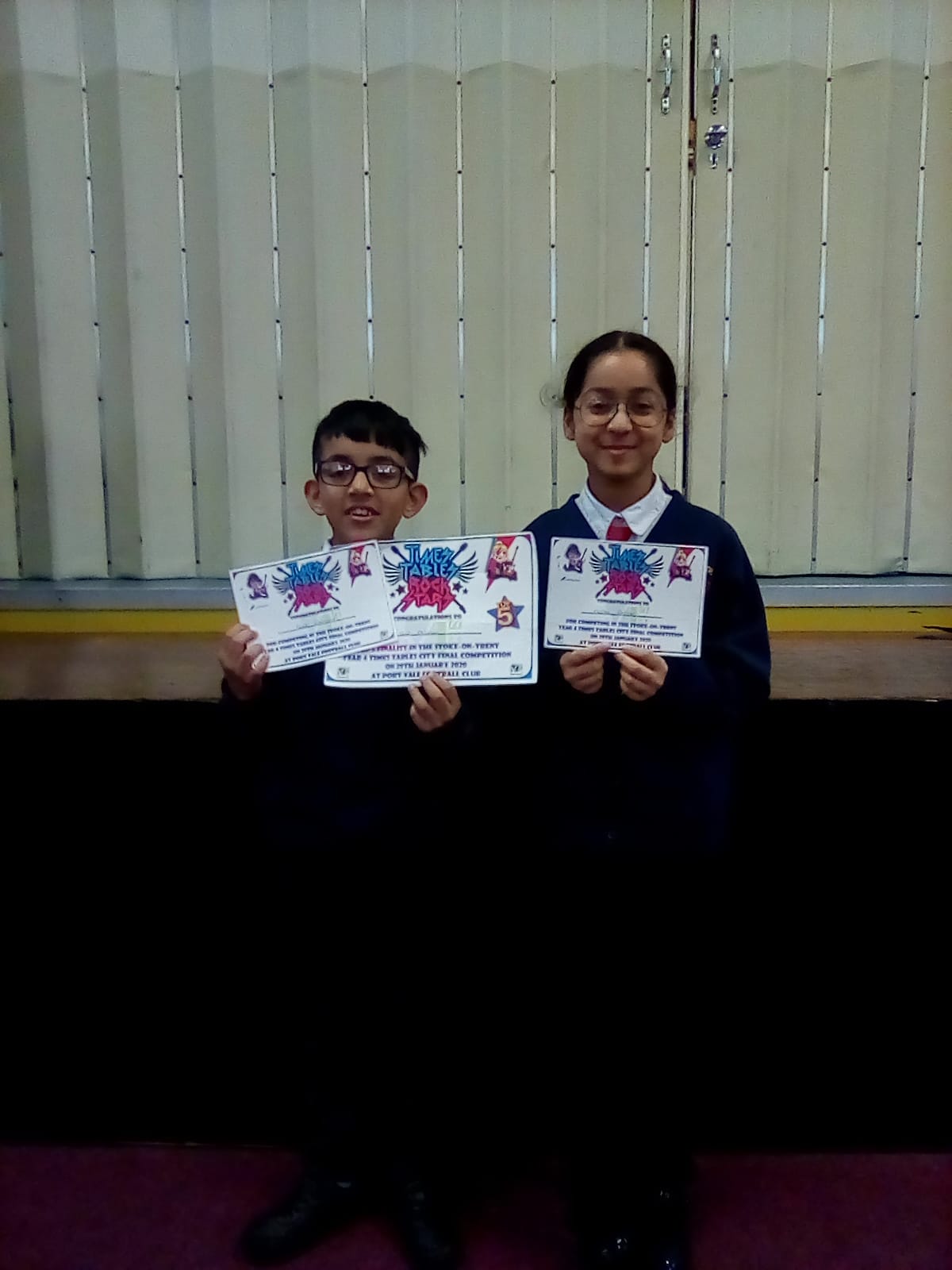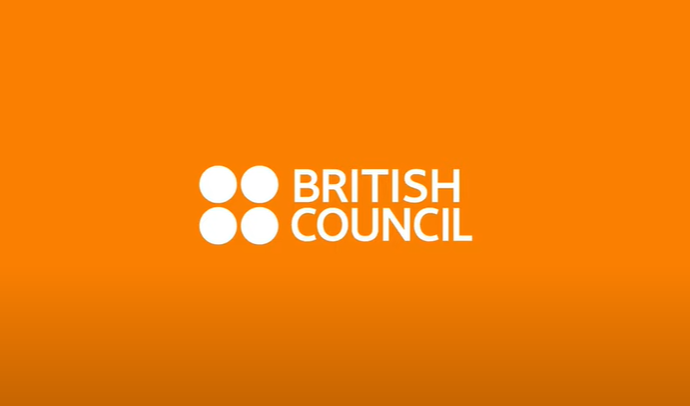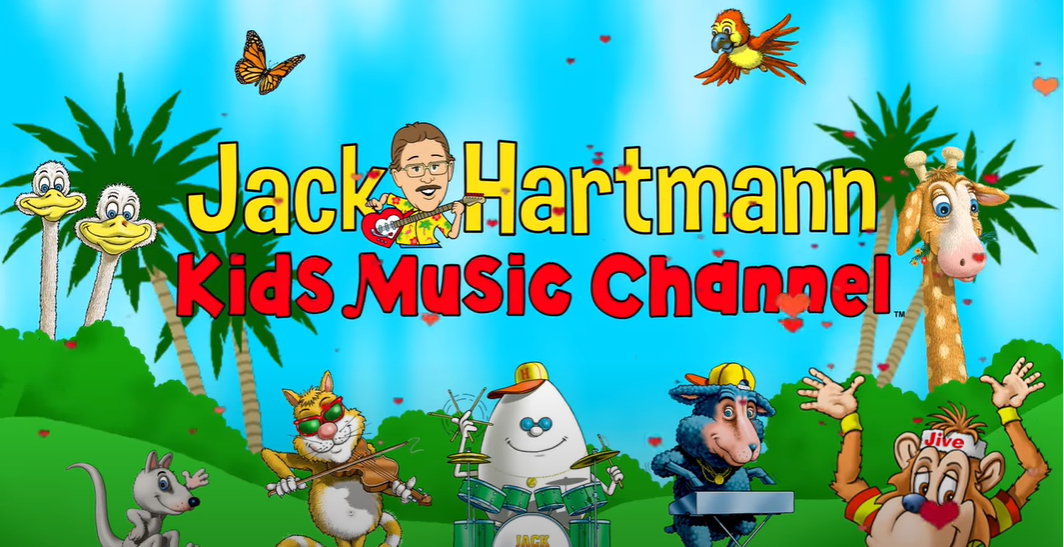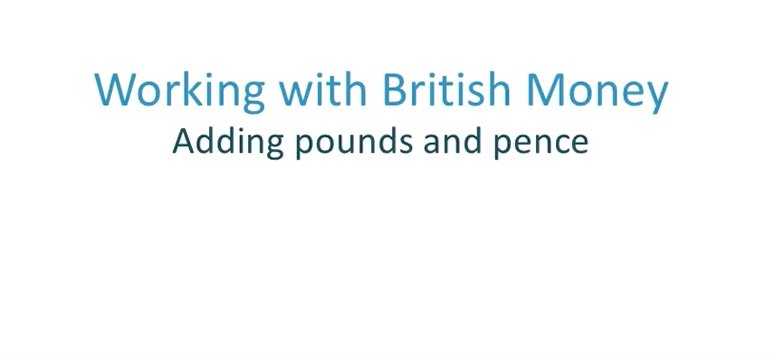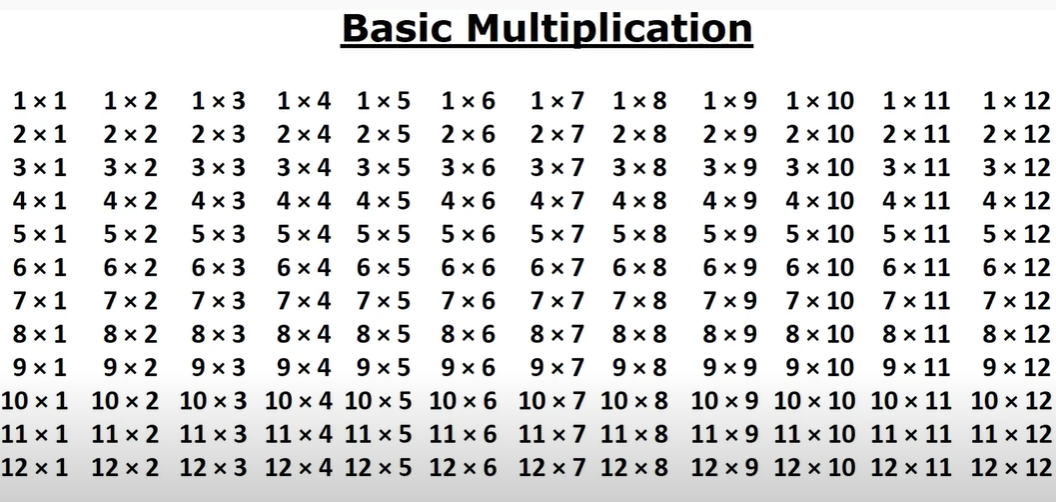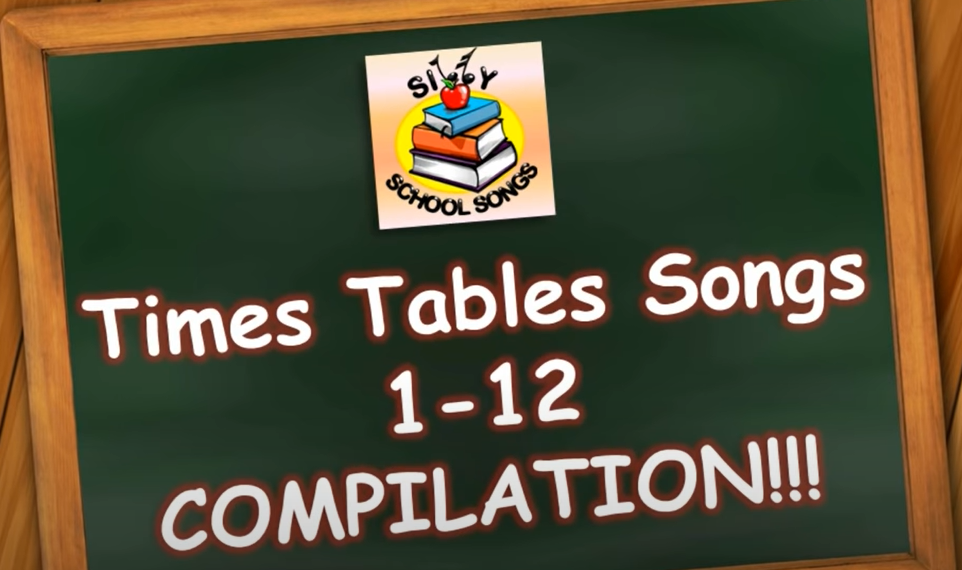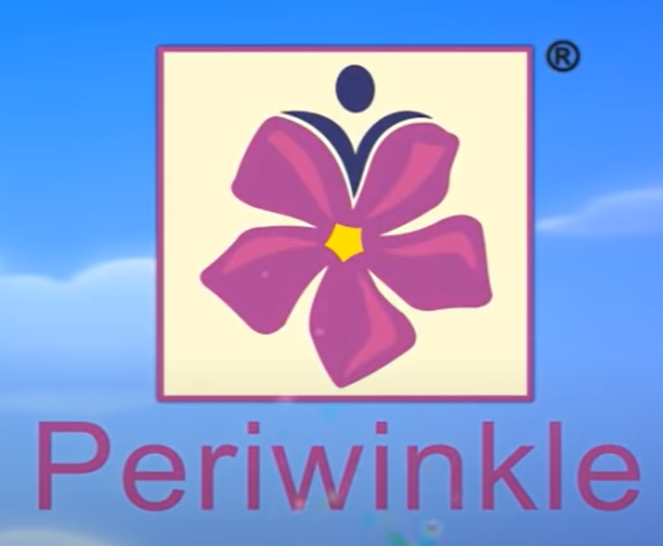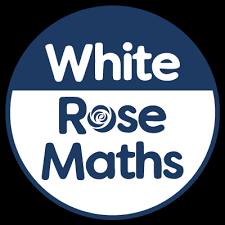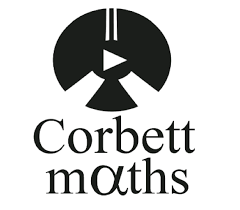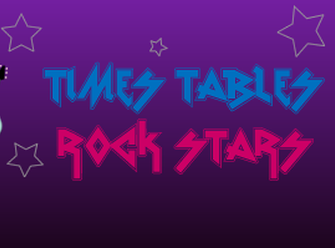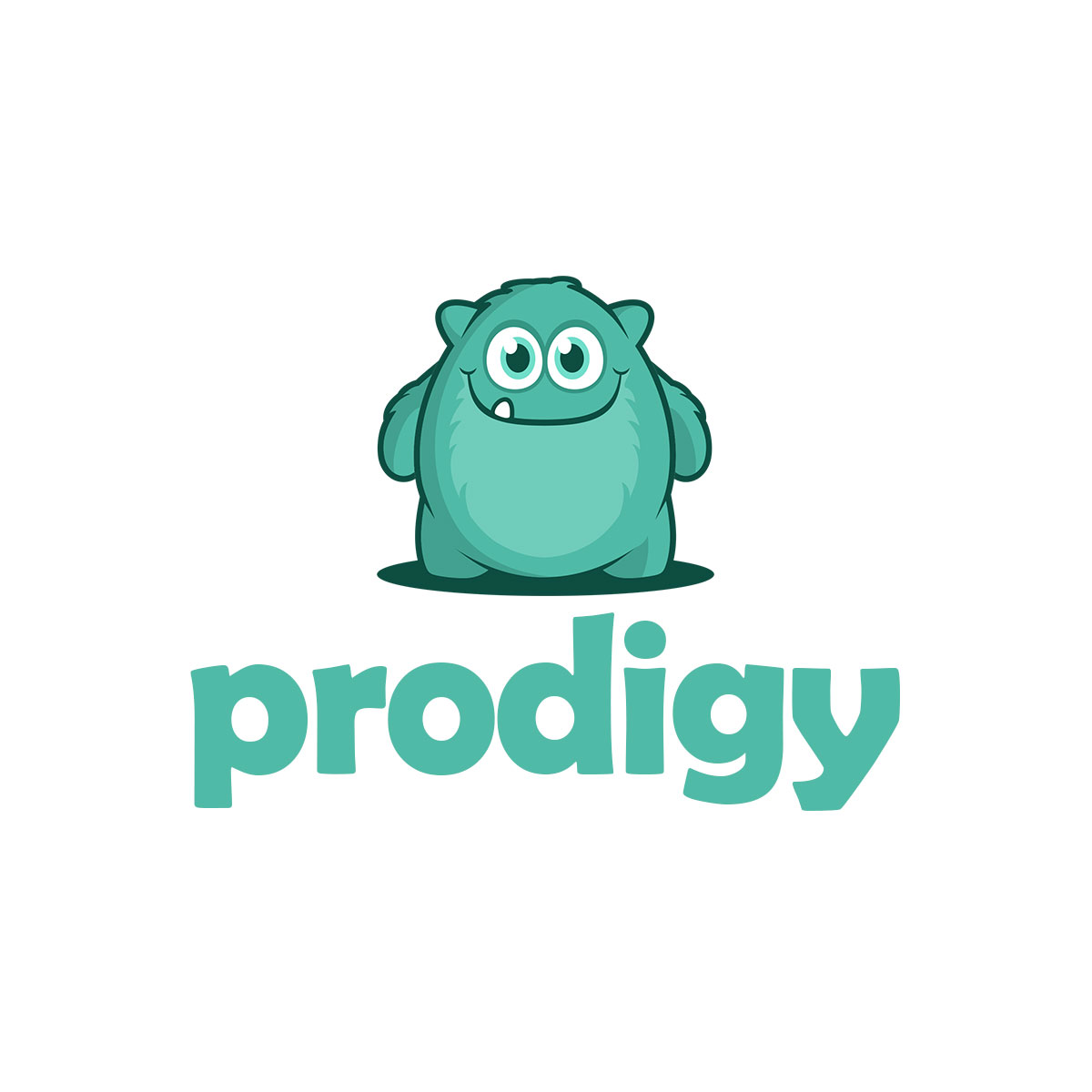MATHS
Maths Vision
(Subject Lead: Mrs S. Barnett)
At Alexandra Junior School, our vision is for children to leave as confident, skilled and resilient mathematicians; who understand that mathematics is a fundamental part of everyday life and the world we live in.
Integrated within our maths lessons is our Alexandra Promise to our pupils and our school context-based drivers, the 5Es (Excel yourself, Embrace yourself, Explore the world, Engage with others, Express yourself). For instance, our language rich and discussion based maths provision, particularly in our Guided Reasoning sessions, supports essential knowledge and language development for the pupils at Alexandra Junior School, allowing the children to both engage with each other and express themselves through their mathematical discussions. Moreover, our real life context maths gives the children the opportunity to explore their world through maths and excel themselves when approaching problems.
We believe in equality of access, and endeavour to unlock pupils’ potential for future life choices by giving children real-life learning experiences and opportunities to ensure that they are money-smart and confident to deal with the challenges the world presents. Mathematics is integral to all aspects of life and with this in mind, we endeavour to ensure that children develop a healthy and enthusiastic attitude, and a deep understanding, that will stay with them for life. We encourage pupils to be confident to answer questions and not to be afraid of getting it wrong, but instead viewing it as an opportunity to learn. Our children will thrive upon conquering the challenges and puzzles that mathematics will bring and not be afraid to make mistakes.
At Alexandra Junior School, we have embraced the mastery approach and our Mathematics Mastery curriculum has been developed to ensure every child can achieve excellence in mathematics. Children can experience a sense of awe and wonder as they solve a problem for the first time, discover different solutions and make links between different areas of mathematics. It provides pupils with a deep understanding of the subject through a concrete, pictorial and abstract approach. This ensures pupils fully understand what they are learning.
Key features of our Maths Mastery curriculum:
- High expectations for every child (excel yourself)
- More time spent on each area of the maths curriculum, greater depth (excel yourself)
- Number sense and place value come first
- Focus on mathematical thinking and language (engage with others and express yourself)
- Resources to support
- Problem solving is central
- Calculate with confidence– understand why it works
Mathematics Mastery places emphasis on the cumulative mastery of essential knowledge and skills in mathematics. It embeds a deeper understanding of maths by utilising a concrete, pictorial, abstract approach so that pupils understand what they are doing, rather than just learning to repeat routines without grasping what is happening.
By providing these opportunities, we ensure that our children are motivated, confident, life-long learners who will continue to explore the world around them, way beyond their time at primary school.
We welcome you to review the Curriculum and Pedagogy documents to see how the maths curriculum is put into practice.
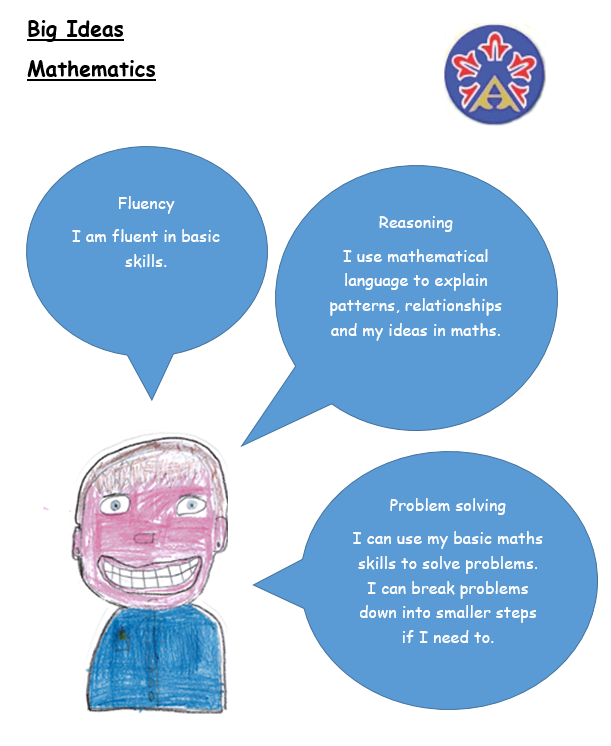
Click on the video to take a look at the addition strategies we use.
Click on the video to take a look at the subtraction strategies we use.
Click on the video to take a look at the multiplication strategies we use.
Subject Lead Statement
I would like to introduce myself as Mrs Barnett, Maths subject leader here at Alexandra Junior School. I believe that mathematics is a fundamental part of everyday life and the world we live in and at Alexandra Junior School we are committed to developing a positive attitude, competence and confidence in mathematical knowledge, concepts and skills. The children thrive upon conquering challenges and solve problems using reasoning, thinking logically and working systematically and where possible, learning is linked to real life situations, giving the children a purpose and understanding of where maths appears in real life contexts.
I advocate that all children, of all abilities learning together, working together on the same mathematical theme with the same success criteria for the skill being explored. The use of the bronze, silver, gold and platinum approach supports this thinking and enables teachers to ensure that learning is pitched appropriately and support the children as they progress through the skills. The differentiated activities ensure children have the practise and consolidation they require, whereas those children who need it can deepen their learning through using and applying, reasoning and fluency tasks.
Research around metacognition underpins our mathematical teaching in school. Teachers use precise questioning in class to test conceptual and procedural knowledge and effective modelling of concepts allows our children to understand the thought processes and steps needed to achieve. Children are then given adequate time to practice concepts with scaffolds and support, as appropriate, to ensure the children have opportunity to rehearse new learning in order for it to be committed to long term memory. Previous learning is revisited through the use of ‘Can you still…’ starters in order to check retention of skills and understanding.
Moderation of the standards of children’s work and of the quality teaching in mathematics is my responsibility alongside other members of the senior leadership team. My work involves supporting colleagues in the teaching of mathematics, being informed about current developments in the subject through the support of a Maths Specialist as part of the Maths Hub, and providing a strategic lead and direction for the subject in the school. I work alongside the other maths subject leaders in our New Guild Trust to ensure that there is a consistent approach to developing mathematics and moderation of teaching and learning. Miss S. Mudumo, who is a member of the school’s governing body is briefed to oversee the teaching of maths. She meets with me to review progress in mathematics and has a passion for ensuring the children of Alexandra Junior School achieve well in this area of the curriculum.
Pupil Voice
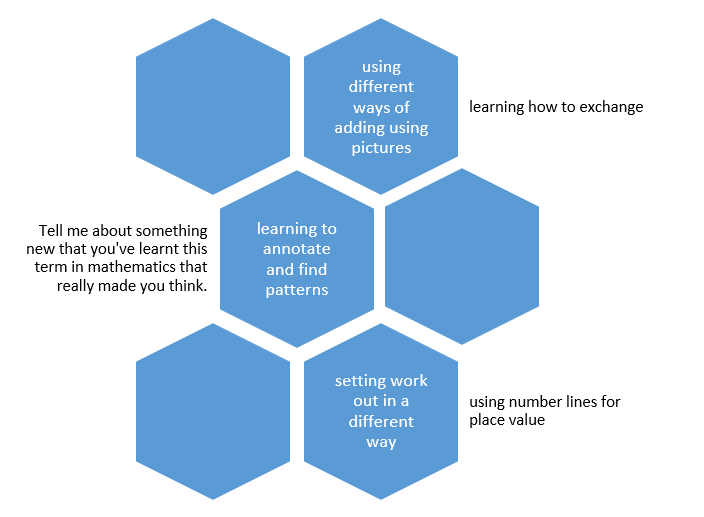
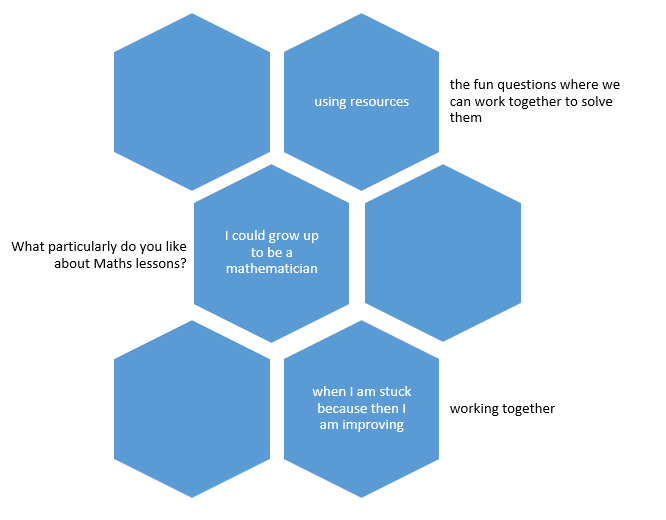
MATHS NEWS
Watch Me Learn
We invited the parents of the Year 5 children in to our classrooms to watch their children learn and we were happy to have such a fantastic amount of parents join us.
Below is feedback they gave us following their visit to our classrooms.
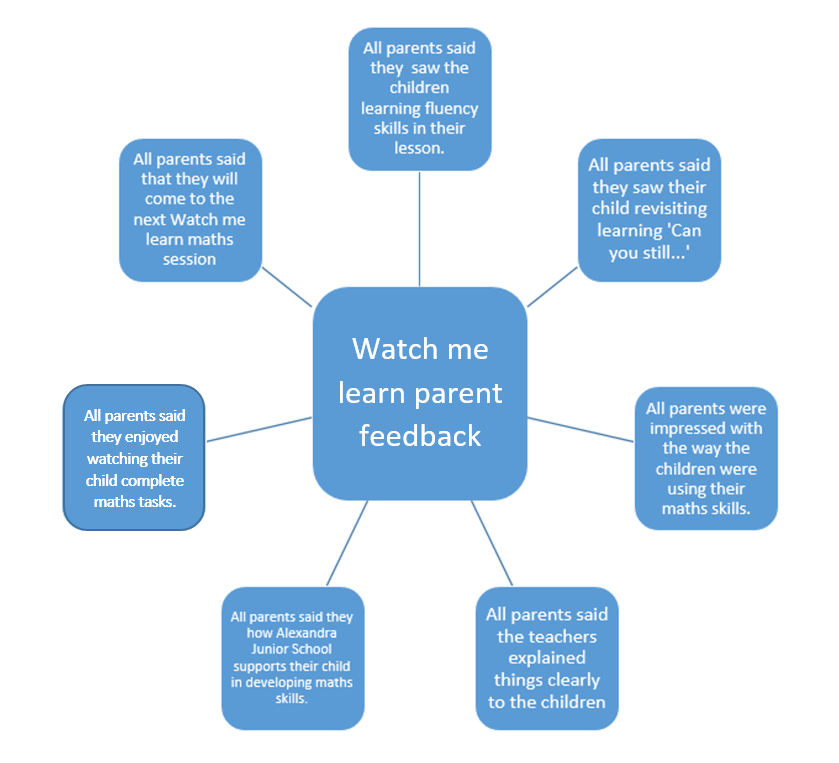
Real Life Maths Week
We always enjoy our Real Life Maths Weeks but this time it was even better than ever before!
Our focus was careers that use maths.
We had zoom chats with a designer for Rolls Royce, a representative from the Home Office and the Bank of America as well as videos from various people including aeroplane pilots, a car sales person, a zookeeper, a railway engineer, urban designers, a pixar animator and many others and a live in person talk from a helicopter pilot too!
Here’s what some of our children said at the end of our Real Life Maths Week.
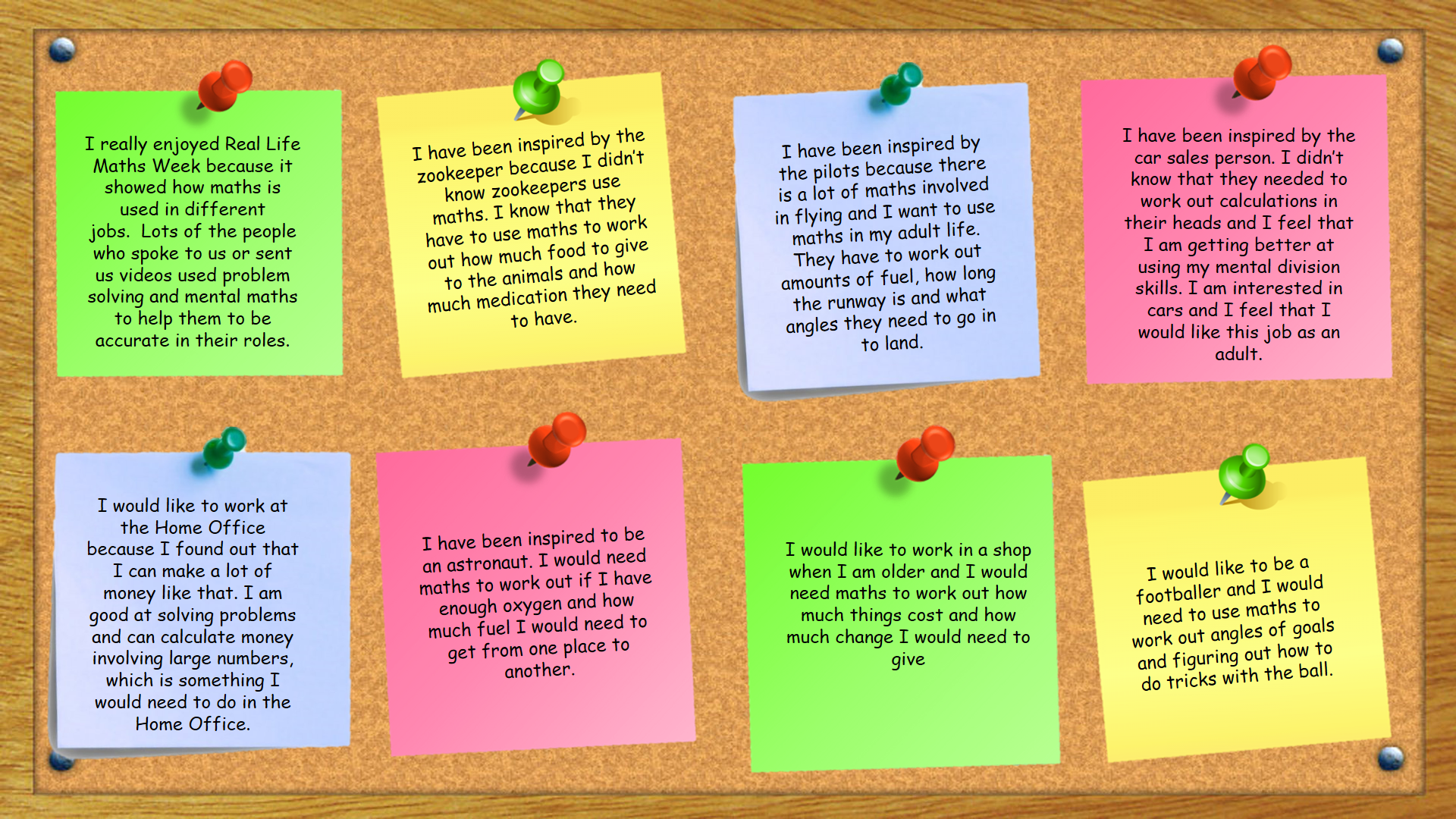
Number Day
We all had a great day wearing something with a number on and working together to complete maths challenges from Mrs. Barnett: making numbers, fractions and even number sentences from the numbers on our outfits! We also used our outdoor areas to find and create numbers too!
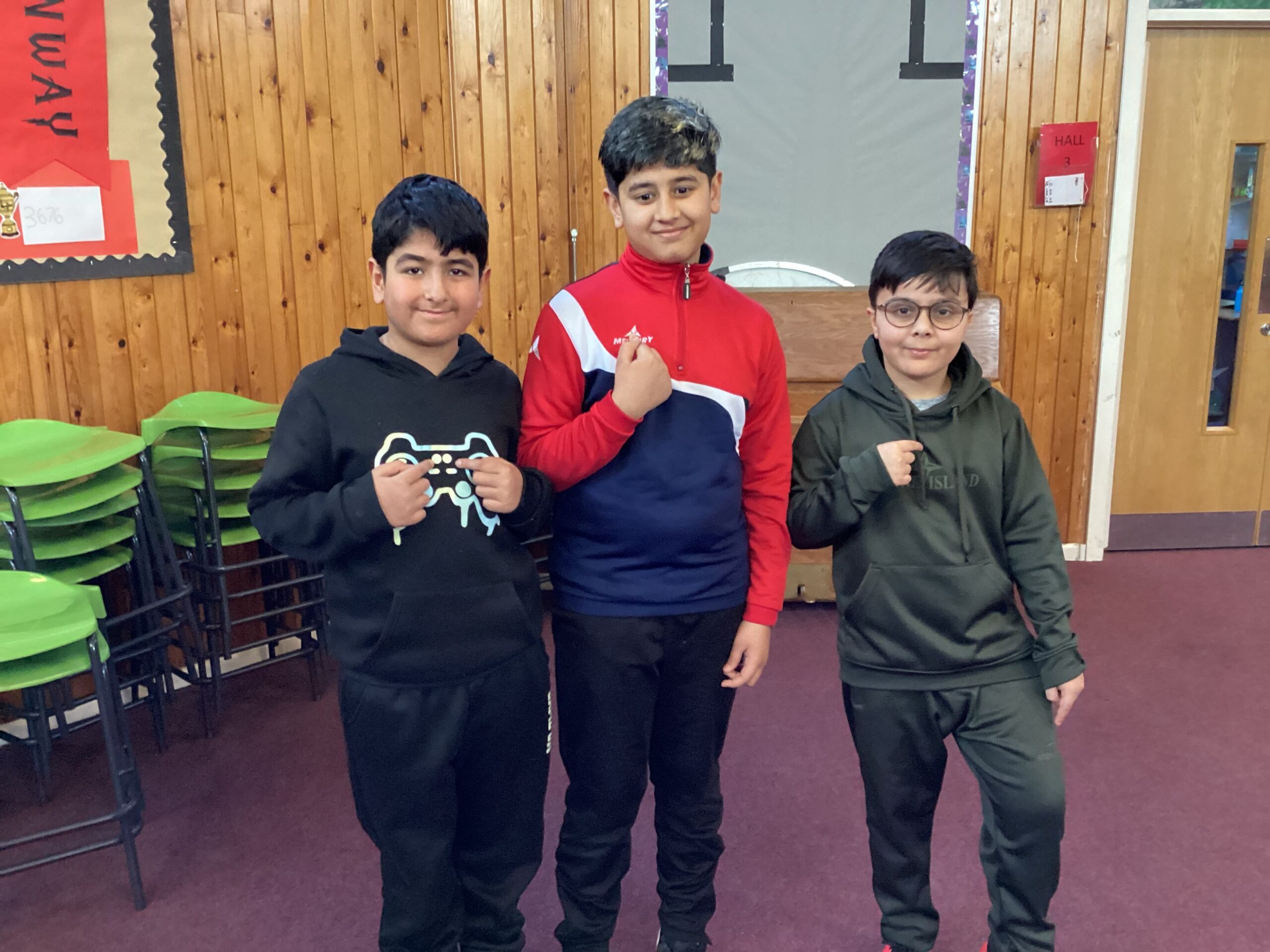
TT Rock Stars
A team of our children took part in a city-wide Times Table Rock Stars challenge and two of them made it through to the final at Port Vale Football Club. They competed against 38 finalists from the smaller competitions from around the city and came within the top 10, with one of them coming within the top 3!
Supporting Maths at Home
As with reading & writing, try to make maths as much fun as possible – games, puzzles and jigsaws are a great way to start. It’s also important to show how we use maths skills in our everyday lives and to involve your child in this.
Identifying problems and solving them can also help your child develop maths skills. If you see him or her puzzling over something, talk about the problem and try to work out the solution together.
Don’t shy away from maths if you didn’t like it at school. Try to find new ways to enjoy the subject with your child.
Tips for helping your child to enjoy maths:
- Point out the different shapes to be found around your home/ local area
- Take your child shopping and talk about the quantities of anything you buy
- Let your child handle money and work out how much things cost
- Look together for numbers on street signs, adverts and car registration plates
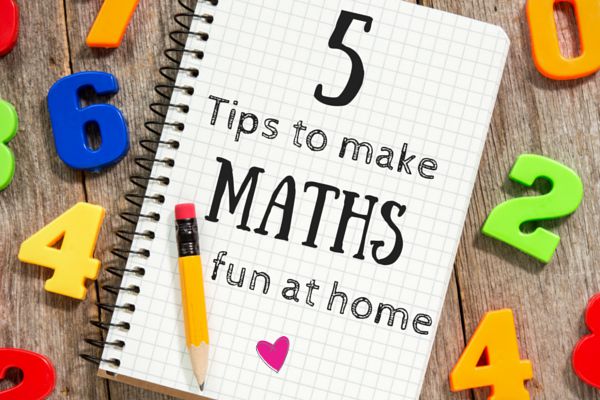
Talk it, play it, see it, touch it, think about maths – every day!
A selection of fun and easy activities that will help your child think about maths – every day.
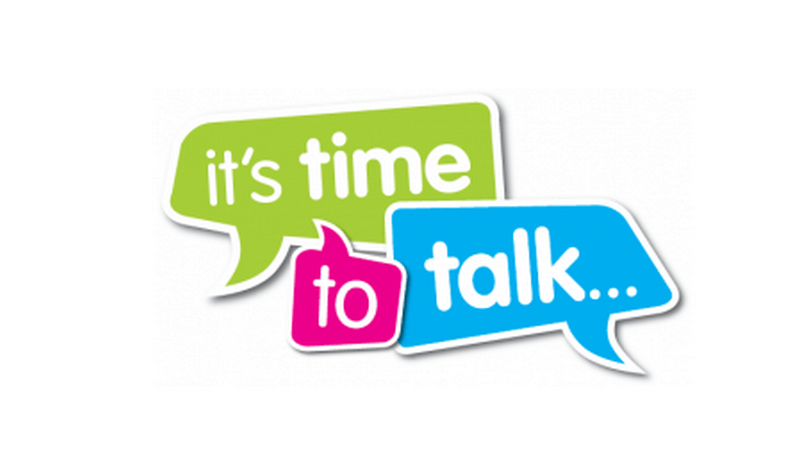
TALK IT
Point out the maths in everyday life, and include your child in everyday activities where you use maths – handling money, shopping, cooking, and travelling by car or bus.
Talk about time – for example, how long does it take to walk to school/the park/the chip shop? What time do you need to leave the house so that you’re at school on time? Explain that you are doing maths.
Practise counting up to twenty, and backwards too, to higher and higher numbers, and backwards too. Counting by itself can be boring, so encourage them to count things like steps, jumps, bounces, (good for competitions too!), or clouds in the sky, trees, crisp packets, lampposts, red cars, ants…anything!
To help your child understand what numbers mean, ask them to find the same amount of different items. For example, find 3 spoons, 3 hats, or 3 socks.
Talk about the shape and size of objects, e.g. big car, little car, round ball, square table, rectangular book, and ask them questions like ‘pass me the biggest box’, or ‘which one is the smallest shoe’. Use the internet to find interesting size facts like tallest and shortest people, or biggest and smallest buildings etc.
Sing counting songs, read books, play games, and watch films about maths.
Use turn-taking to talk about time – for example, if they have a 20 minute turn on the computer, and they’ve already used 10 minutes, how much longer can they use the computer for?
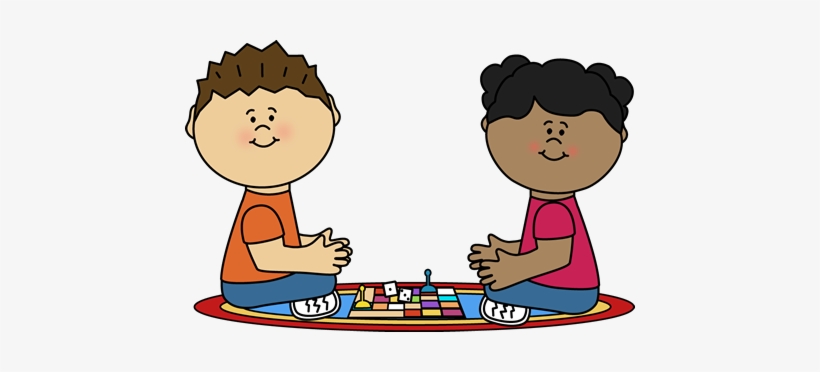
PLAY IT
Play games with cards – players take 2 cards and add the numbers – the player with the highest number wins. You can play this game with subtraction, multiplication, and division too.
Create patterns – make up short dances, or rhythms using your body (e.g. clap, clap, stomp, belly slap, and repeat).
Play with blocks like Lego or Jenga – encourage your child to think about size, colour, shape, weight, texture, and create patterns and structures too. Ask them to guess how many blocks they could pile up without them falling down and then build them up to see if they were correct.
Play ‘I spy’ but with numbers or shapes.
Play with containers – how many socks can you fit in the box? Which container holds the most sand/water/beads etc. How many sweets are in the jar? Ask your child to predict an answer and then do the activity to see if they were right/how close they were.
Clue Game
Pick an object and give your child clues to that object by using directional language: up, down, over, under, between, through, beside, behind, in front of, and on top of. Make the game more challenging: give two or even three part directions e.g. ‘It’s on top of the table and to the left of the magazine’. To make the game more challenging give two part directions e.g. ‘It’s on top of the table and to the left of the magazine’.
Ask your child to design their own board game (and dice), and play the game together. Afterwards, talk about what mathematical thinking, reasoning, or problem solving the game used or encouraged.

SEE IT
Go on a shape hunt – how many circles, squares, rectangles, triangles can you and your child find? Are they 2D or 3D? You can look for patterns and symmetry too.
Look for numerals…on doors, buses, cars, signs, at home, at the shops, on TV…anywhere. Remember to talk about what the numbers mean.
Count anything – how many lampposts are on our street? How many houses have a red door? How many packs of crisps do we have in the kitchen (and how many did we have yesterday)?
Put things in order – of weight, height, size. Ask your child to help you organise things at home.
Play ‘I spy’ but with numbers or shapes.
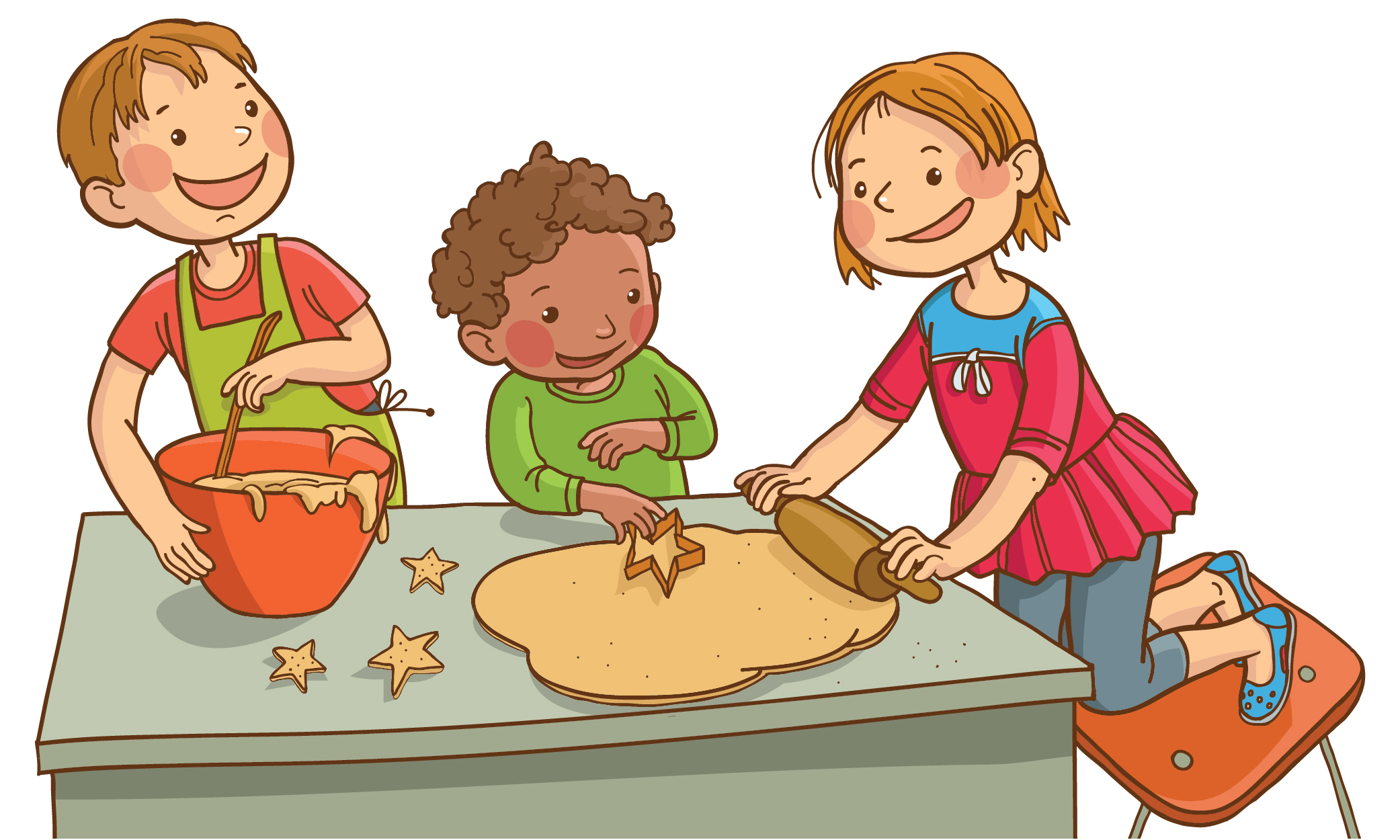
TOUCH IT
Play with things like shells, bottle tops, beads, Lego – and compare them. These things are great for making patterns too.
Put things in order – of weight, height, size. Ask your child to help you organise things at home.
Make patterns with objects, colouring pencils, paint or play-dough.
Build structures with Duplo, Lego, or cardboard boxes.
Ask your child to help you measure out ingredients/set the timer when you are cooking.
When you eat food that can be shared, like pizza, crisps, cake, berries etc…, and your child to help you share it equally with whoever’s eating.
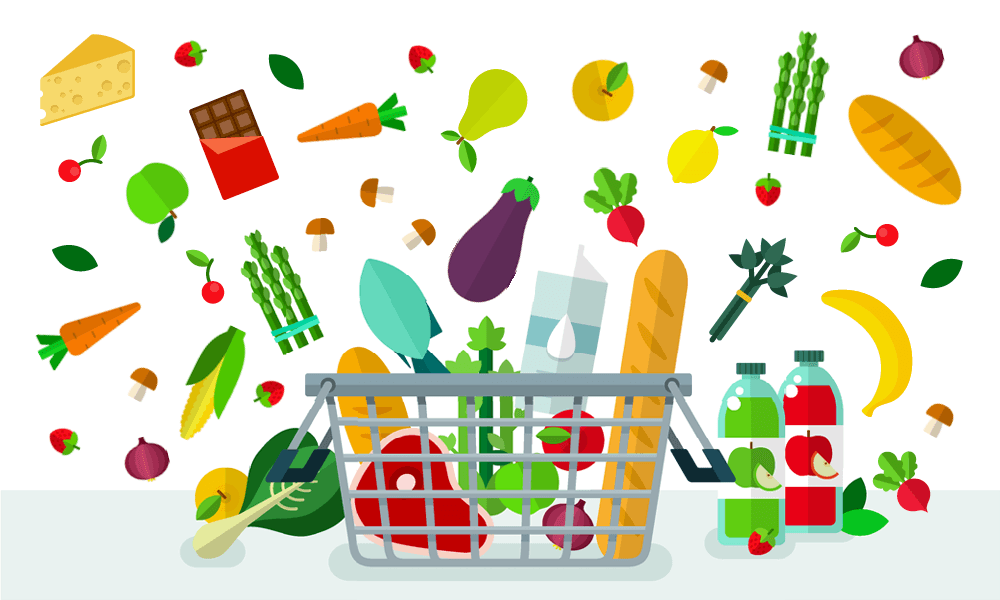
THINK IT
Estimate – at the shops ask your child to estimate how much 2 or 3 items will come to, or how much more food you’ll need if extra people come for tea.
Play ‘Think of a number’ – you think of a number between 0-10, and they have to guess. They can ask questions like ‘is it less than 5’?
At school, children learn to add and subtract in practical situations that crop up in the classroom long before they start to write down calculations. You can ask them to help you to solve problems at home, when you are working out ‘how many altogether’ or ‘how many more’, such as:
‘We have 3 red apples and 2 green apples, so how many apples do we have altogether?’ or ‘We have 6 chocolates/oranges/crisps, if I eat 3, then how many will we have?’
When they need to tidy their room, ask them to estimate how many objects are on the floor, then count them as they put the objects away – were they right?
At school, children learn to problem solve long before they start to write calculations.
Ask your child to collect information and create a tally chart, e.g. find out the family’s favourite animal or fruit etc.
Following feedback from our maths coffee morning, I have added links to videos to support learning of time, money and times tables as well as links to websites where you and your child can practise the skills.
TIME
British Learning Council
Learn how to tell the time
Twinkl
Learn how to tell the time
Jack Hartmann - Kids Music Channel
Learn how to tell the time
ONLINE GAMES AND ACTIVITIES TO SUPPORT LEARNING ABOUT TIME
Top Marks
Time Games and Activities
Maths Games
Time Games and Activities
MONEY
Twinkl
Learn about UK coins
Twinkl
Learn about UK notes.
Maths with Mum
Adding pounds and pence
ONLINE GAMES AND ACTIVITIES TO SUPPORT LEARNING ABOUT MONEY
Top Marks
Money Games and Activities
Family Learning
Money Games and Activities
MULTIPLICATION
(TIMES TABLES)
My Math TA
A fast way to learn multiplication facts
Silly School Songs
1-12 times table songs
Periwinkle
Learn the concept of multiplication
ONLINE GAMES AND ACTIVITIES TO SUPPORT LEARNING TIMES TABLES
Top Marks
Times Tables Games and Activities
Maths Games
Times Tables Games and Activities
General Maths Website Links
Sumdog
Sumdog is home to lots of maths learning resources and at the moment, parents can sign up for free!
White Rose Maths
Short tutorials to support your child in developing and practising a maths skill.
Corbett Maths
Home to 1000’s of maths resources: Videos, Worksheets, 5-a-day, Revision Cards and much more.
Times Table Rock Stars
We use Times Tables Rock Stars to practice our times tables with band battles taking place each half term with certificates for speed and engagement!
The challenge is on to complete 10 garage tests every week!
Prodigy Maths
Prodigy delivers a unique learning experience through an interactive math game where success depends on correctly answering skill-building maths questions.
